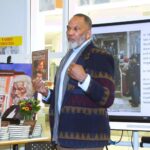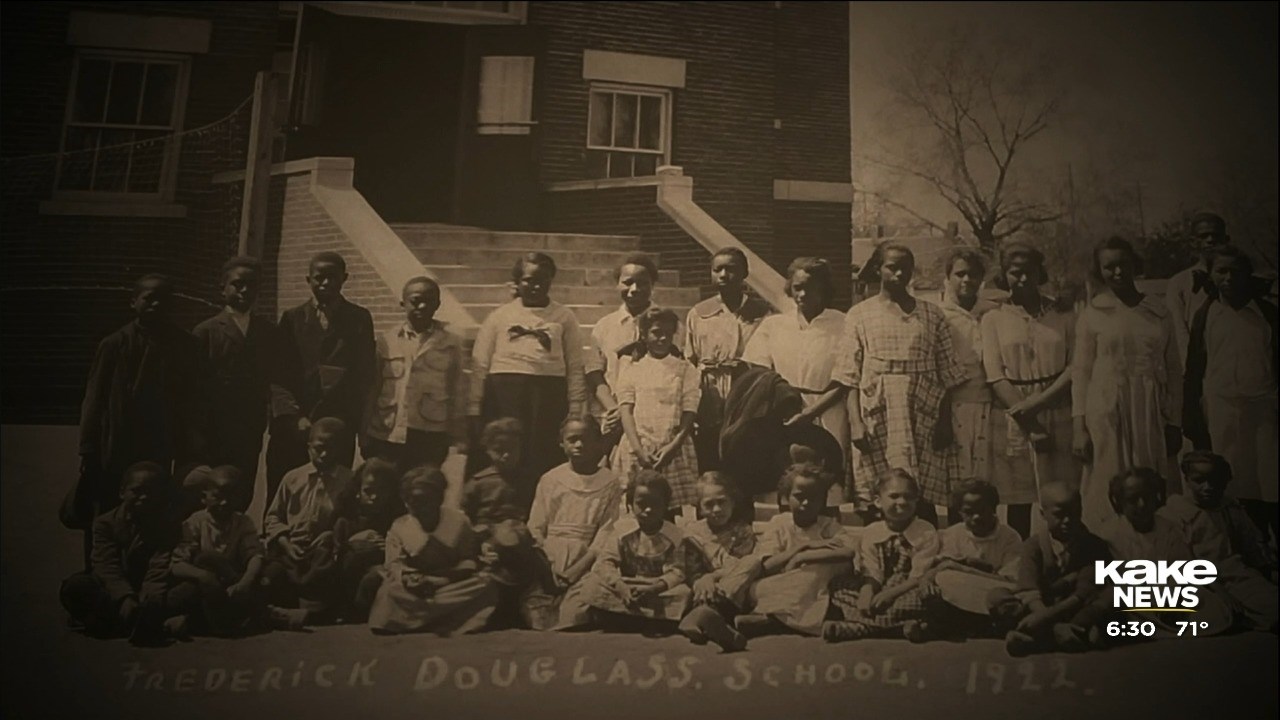- BlackVoter.Org
- Posts
- Blackvoter.org Issue #2
Blackvoter.org Issue #2
Empowering Awareness: Stay Grounded With Blackvoter.org Newsletter!


In a chilling historical account, the article delves into the haunting tale of The Slocum Massacre, also known as the 'Town on Fire'. Set in Texas in 1910, this dark chapter unfolds as a tragic tale of racial violence and injustice. Reds and whites, as they are referred to, clash in a devastating massacre that leaves an entire town in ruins.
• Heart wrenching story of The Slocum Massacre, as Texas falls victim to racial violence.
• Reds and whites collide in a devastating clash, leaving a path of destruction in their wake.
The author masterfully paints a vivid picture of this grim event, showcasing the deep-rooted racial tensions and power struggles that plagued the American South during that time. Through firsthand accounts and historical records, the wreckage of Slocum is documented meticulously, revealing a harrowing tale of lives destroyed and a community left in ruins.
• Author brings the harrowing story to life through firsthand accounts and historical records.
• Tragic tale of lives destroyed and a community left in ruins.
The Slocum Massacre serves as a grim reminder of the horrific consequences when prejudice, bigotry, and fear take hold and tear communities apart. It is a stark reminder of the importance of unity, understanding, and compassion in a world that has learned from its past mistakes. A must-read for history buffs or anyone interested in the human condition, 'Town on Fire' uncovers the haunting truth of a forgotten tragedy.

Black-owned small businesses in the U.S. have a significant economic impact, contributing $206 billion in annual revenue and supporting 3.56 million jobs. The number of Black-owned businesses has been growing, with a 23% increase between 2017 and 2021. However, these businesses still face hurdles that other businesses don't, including historic housing disparities and systemic racism. Redlining and gentrification have limited Black Americans' ability to move up in society and have led to disparities in wealth and homeownership between white and Black Americans. To address these issues, initiatives such as increasing building permits, expanding affordable housing, and providing accessible down payment assistance have been suggested. The federal government has also taken action to support Black businesses, including the signing of an executive order to strengthen racial equity and increase federal contracting dollars awarded to small disadvantaged businesses. While Black-owned businesses contribute greatly to the economy, more work is needed to address the disparities that remain.

Harvard University has announced that Claudine Gay will become its next president, making her the university's first Black leader and the second woman to hold the position. Here are five things to know about Gay:
• She is the daughter of Haitian immigrants and was born in New York City. Her parents believed in the power of education and gave her three career options: engineer, doctor, or lawyer.
• Gay has deep ties to Harvard. She received her bachelor's degree in economics from Stanford before enrolling in graduate school at Harvard, where she received her Ph.D. in government.
• She is currently the dean of Harvard's Faculty of Arts and Sciences and has been involved in various initiatives and research on topics such as political attitudes, racial relations, and social and economic inequality.
• Gay is lauded by colleagues for her leadership and commitment to academic excellence and inclusion. However, her tenure as dean has not been without controversy, with criticism over handling sexual misconduct allegations and tenure decisions.
• Gay's appointment comes at a critical time, as the U.S. Supreme Court is expected to rule on cases involving the use of race in college admissions. The court's decision could have significant implications for Harvard and other universities.

San Francisco's Board of Supervisors is set to issue a formal apology to Black residents for the racist laws and policies perpetrated by the city. The apology is seen as an important first step as the city considers providing reparations. All 11 members of the Board of Supervisors have signed on as sponsors of the apology resolution, guaranteeing its passage. The resolution calls on San Francisco to commit to making substantial investments in Black communities and to avoid repeating harmful policies and practices. However, some activists argue that an apology alone is insufficient and that concrete actions are needed for true atonement. This apology would be the first reparations recommendation to be realized out of more than 100 proposals made by the city committee. The African American Reparations Advisory Committee had also proposed a $5 million lump-sum cash payment and a guaranteed income for eligible Black adults to address the city's racial wealth gap.
• San Francisco's Board of Supervisors plans to issue a formal apology to Black residents for the city's history of racist laws and policies
• All 11 members of the board have signed on as sponsors of the apology resolution
• The resolution calls for substantial investments in Black communities and a commitment to avoiding harmful policies
• Some activists argue that the apology is not enough and concrete actions are needed for true reparations
• This would be the first reparations recommendation to be realized out of more than 100 proposals made by the city committee.

This article highlights the achievements and contributions of 100 Black trailblazers in Pennsylvania. These individuals come from various industries and sectors, and some of the notable figures mentioned include:
• Patricia Wilson Aden, the president and CEO of the Greater Philadelphia Cultural Alliance.
• Sheila Alexander-Reid, the executive director of PHL Diversity, focused on promoting Philadelphia as an inclusive destination.
• Brenda Allen, the president of Lincoln University, leading efforts to enhance academic quality.
• David Arthur, the interim vice president of public affairs and sustainability at PPL Corp, responsible for advocacy and sustainability.
• April Ashe, the executive director of the Pennsylvania Legislative Black Caucus, working on legislation for underserved communities.
• Melissa Atkins, the first Black female partner at Obermayer Rebmann Maxwell & Hippel LLP, specializing in labor and employment law.
• Donna Bailey, the interim CEO of the Division of Community Behavioral Health in Philadelphia, overseeing mental health services.
• Joel Barnett, the senior VP and director of commercial affinity banking at Fulton Bank, focused on building relationships with diverse businesses.
• Craig T. Beazer, the executive VP and general counsel of Lincoln Financial Group, leading legal and compliance efforts.
• Joann Bell, the director of the Philadelphia office of Pugliese Associates, a lobbying firm, and a radio commentator.
These trailblazers are making significant contributions to Pennsylvania's government, politics, and various industries. They play critical roles in advancing diversity, equity, and inclusion, and their work spans across a range of important areas, from education to healthcare and economic development.

Conservative pundits are claiming that Donald Trump's "Never Surrender" gold high top sneakers will win him Black votes in the upcoming election. The sneakers debuted at Sneaker Con in Philadelphia and sold out for $400 a pair. On Fox News, commentator Raymond Arroyo said that the sneakers are resonating with Black Americans because of their love for sneakers. However, the author of the article disagrees, stating that the sneakers would be seen as "trash" by people in his neighborhood. The author also criticizes Trump's recent comments at the Black Conservative Federation Gala, where he suggested that Black voters support him because of the legal battles he's faced. The author concludes that the sneakers and Trump's comments show how out of touch conservatives are with the Black community and their values.

Frederick Douglass' descendant, Kevin Douglass Greene, visited Philadelphia to deliver copies of Frederick Douglass' memoir to local students and speak at their Black History Month celebration. The Frederick Douglass Family Initiative, founded by Greene's cousin, Kevin Morris, aims to provide 1 million copies of Douglass' book to students across the country through the One Million Abolitionists project. So far, 600 copies of the book have been distributed to students in Philadelphia. Greene emphasized the importance of providing young people with books and bridging the generational gap. Teachers and students expressed their appreciation for the opportunity to learn about and meet a descendant of Frederick Douglass, emphasizing the importance of preserving and teaching Black history. This initiative comes at a time when book bans have sparked concern about the erasure and rewriting of history, particularly regarding the history of slavery.

Rev. Dr. Aidsand Wright-Riggins III, the mayor of Collegeville, Pennsylvania, reflects on Black History in his lifetime. He became the first African-American person elected as mayor in 2017.
• Wright-Riggins discusses his upbringing in a segregated community in southern California and the history of his family's name, which comes from a former slave.
• He felt a deep call to ministry from a young age and was licensed as a minister at nine years old.
• Wright-Riggins shares a personal experience he had with Ronald Reagan and discusses his career in the church.
• He also discusses incidents of hate and racism he has faced in Collegeville.
• Wright-Riggins emphasizes the importance of teachers and the need for younger generations to become engaged in local government.
• He currently serves as an active member of the NAACP and has goals of political advocacy, redevelopment, and partnership with Ursinus College for his second term as mayor.

This article discusses the impact of segregation and discrimination on the health of African Americans, particularly in relation to Alzheimer's disease. Highlights from the article include:
• African Americans and Black adults are known to be twice as likely to develop dementia as they age compared to other ethnic groups.
• Living patterns, poverty, and distrust of the medical community are factors that contribute to this disparity.
• Segregation laws in the past confined African Americans to less desirable neighborhoods, where they still predominantly reside today.
• Health outcomes such as arthritis, diabetes, high cholesterol, and heart disease are more prevalent in these neighborhoods, which are also often precursors to age-related memory loss.
• African Americans have historically avoided participating in health studies, but efforts are being made to change this in order to improve understanding and treatment of Alzheimer's disease in the African American community.
• African American Kansans are about two times more likely than whites to have Alzheimer's and other dementias, but are only 34% more likely to have a diagnosis.

The article discusses the impact of divisive concepts on K12 education and highlights some key findings from a study conducted by the Pew Research Center. Here are the main points:
• Over 40% of teachers believe that current curriculum-related debates have had a negative impact on their job.
• 71% of teachers feel that they don't have enough influence over what is being taught in their local public schools.
• Teachers believe that their state government has too much influence over curriculum decisions.
• The legacy of slavery is a pressing topic that influences state policy decisions for K12 education.
• Black students and teachers believe that the impact of slavery still affects Black people today.
• LGBTQ-related issues have been deemed controversial for classroom discussion in several states.
• Book bans that involve LGBTQ+ characters and topics have been implemented in several states.
• Elementary school teachers are more likely to believe that students should not learn about gender identity at school, whereas a greater percentage of middle and high school teachers believe that students should learn about it.
• Overall, nearly half of all teens believe that the legacy of slavery still has an impact on Black people today.

A new report from the LGBTQ+ Victory Institute and Loyola Marymount University’s LGBTQ+ Politics Research Initiative reveals that black LGBTQ+ candidates continue to face significant obstacles when running for office. Despite a record number of 141 black LGBTQ+ candidates running for office in the US during the 2022 election cycle, these candidates faced racism, homophobia, transphobia, financial challenges, lack of role models, and unfair media coverage. The report, titled "When We Run: The Campaign Trail Experiences of Black LGBTQ+ Candidates," analyzes data from the 2023 study "When We Run: The Motivations, Experiences and Challenges of LGBTQ+ Candidates in the United States." The study calls for increased support from political organizations, increased diversity in staff and leadership, and the identification and combatting of racism, homophobia, and transphobia in political institutions and environments. Currently, only 0.03% of all elected officials in the US are black LGBTQ+ individuals while they make up 0.5% of the adult population.

Philadelphia has established a Reparations Task Force to study and develop proposals and programs for reparations for Black Philadelphians. The task force plans to name its board members this month, with a focus on encouraging descendants of enslaved Africans to apply for open positions. This effort aligns with similar attempts in other cities to address the issue of reparations. In Pennsylvania, Democratic state Rep. Chris Rabb introduced a four-part reparations bill in 2019, but it has yet to see any action in the General Assembly. The City of Evanston, Illinois became the first city in the U.S. to approve a government-funded reparations program in 2019, committing $10 million for housing and economic development programs for Black residents. California lawmakers have introduced a reparations bill package that includes measures such as restoring property taken during race-based eminent domain claims and establishing a grant program for students descended from enslaved people. Some universities, including Princeton and Georgetown, have also taken action on reparations by dedicating funds to scholarships and initiatives supporting descendants of enslaved people.